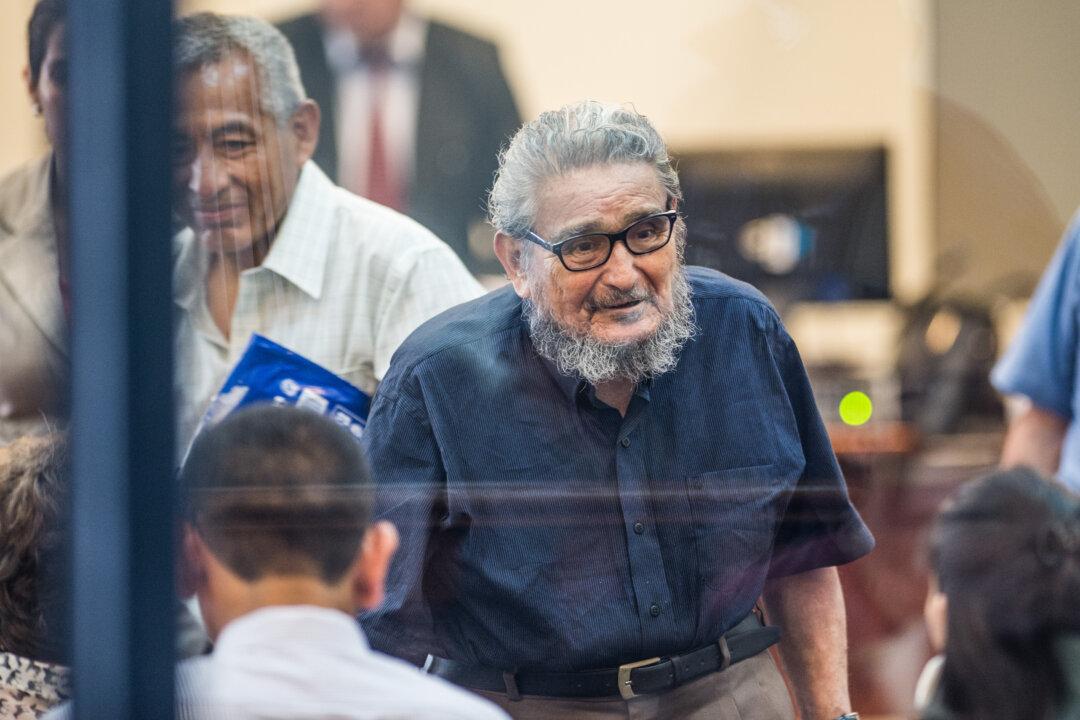LIMA—Abimael Guzman, leader of the Shining Path terrorists who nearly toppled the Peruvian state in a bloody Maoist revolution, died on Saturday while in prison and following several weeks of poor health, the government said. He was 86.
Guzman was captured in 1992 in Lima and jailed for the rest of his life after being convicted as a terrorist. He died one day before the anniversary of his capture, when he was paraded in front of the press in a striped white and black uniform that is not normally used in Peru.





